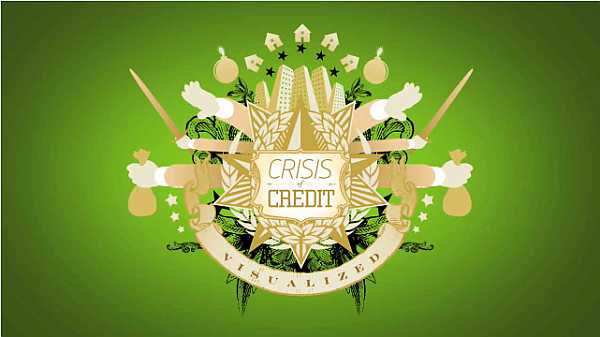
I want to share an excerpt from the teachings of one of my favorite teachers, John Taylor Gatto. For all you who are bored out of your minds by school, this man has the answer. This is from an essay titled
" Against School":
It was from James Bryant Conant-president of Harvard for twenty years,
WWI poison-gas specialist, WWII executive on the atomic-bomb project,
high commissioner of the American zone in Germany after WWII, and truly
one of the most influential figures of the twentieth century-that I first got
wind of the real purposes of American schooling. Without Conant, we would
probably not have the same style and degree of standardized testing that
we enjoy today, nor would we be blessed with gargantuan high schools that
warehouse 2,000 to 4,000 students at a time, like the famous Columbine
High in Littleton, Colorado. Shortly after I retired from teaching I picked
up Conant's 1959 book-length essay, The Child the Parent and the State, and
was more than a little intrigued to see him mention in passing that the
modern schools we attend were the result of a "revolution" engineered
between 1905 and 1930. A revolution? He declines to elaborate, but he does
direct the curious and the uninformed to Alexander Inglis's 1918 book,
Principles of Secondary Education, in which "one saw this revolution through
the eyes of a revolutionary."
Inglis, for whom a lecture in education at Harvard is named, makes it
perfectly clear that compulsory schooling on this continent was intended to
be just what it had been for Prussia in the 1820s: a fifth column into the
burgeoning democratic movement that threatened to give the peasants and
the proletarians a voice at the bargaining table. Modern, industrialized,
compulsory schooling was to make a sort of surgical incision into the
prospective unity of these underclasses. Divide children by subject, by agegrading,
by constant rankings on tests, and by many other more subtle
means, and it was unlikely that the ignorant mass of mankind, separated in
childhood, would ever re-integrate into a dangerous whole.
Inglis breaks down the purpose - the actual purpose - of modern schooling
into six basic functions, any one of which is enough to curl the hair of those
innocent enough to believe the three traditional goals listed earlier:
1) The adjustive or adaptive function. Schools are to establish fixed
habits of reaction to authority. This, of course, precludes critical
judgment completely. It also pretty much destroys the idea that
useful or interesting material should be taught, because you can't test
for reflexive obedience until you know whether you can make kids
learn, and do, foolish and boring things.
2) The integrating function. This might well be called "the conformity
function," because its intention is to make children as alike as
possible. People who conform are predictable, and this is of great use
to those who wish to harness and manipulate a large labor force.
3) The diagnostic and directive function. School is meant to determine
each student's proper social role. This is done by logging evidence
mathematically and anecdotally on cumulative records. As in "your
permanent record." Yes, you do have one.
4) The differentiating function. Once their social role has been
"diagnosed," children are to be sorted by role and trained only so far
as their destination in the social machine merits - and not one step
further. So much for making kids their personal best.
5) The selective function. This refers not to human choice at all but
to Darwin's theory of natural selection as applied to what he called
"the favored races." In short, the idea is to help things along by
consciously attempting to improve the breeding stock. Schools are
meant to tag the unfit - with poor grades, remedial placement, and
other punishments - clearly enough that their peers will accept them
as inferior and effectively bar them from the reproductive
sweepstakes. That's what all those little humiliations from first grade
onward were intended to do: wash the dirt down the drain.
6) The propaedeutic function. The societal system implied by these
rules will require an elite group of caretakers. To that end, a small
fraction of the kids will quietly be taught how to manage this
continuing project, how to watch over and control a population
deliberately dumbed down and declawed in order that government
might proceed unchallenged and corporations might never want for
obedient labor.
That, unfortunately, is the purpose of mandatory public education in this
country. And lest you take Inglis for an isolated crank with a rather too
cynical take on the educational enterprise, you should know that he was
hardly alone in championing these ideas. Conant himself, building on the ideas
of Horace Mann and others, campaigned tirelessly for an American school
system designed along the same lines. Men like George Peabody, who funded
the cause of mandatory schooling throughout the South, surely understood
that the Prussian system was useful in creating not only a harmless
electorate and a servile labor force but also a virtual herd of mindless
consumers. In time a great number of industrial titans came to recognize the
enormous profits to be had by cultivating and tending just such a herd via
public education, among them Andrew Carnegie and John D. Rockefeller.
There you have it. Now you know. We don't need Karl Marx's conception of a
grand warfare between the classes to see that it is in the interest of
complex management, economic or political, to dumb people down, to
demoralize them, to divide them from one another, and to discard them if
they don't conform. Class may frame the proposition, as when Woodrow
Wilson, then president of Princeton University, said the following to the
New York City School Teachers Association in 1909: "We want one class of
persons to have a liberal education, and we want another class of persons, a
very much larger class, of necessity, in every society, to forgo the privileges
of a liberal education and fit themselves to perform specific difficult manual
tasks." But the motives behind the disgusting decisions that bring about
these ends need not be class-based at all. They can stem purely from fear,
or from the by now familiar belief that "efficiency" is the paramount virtue,
rather than love, liberty, laughter, or hope. Above all, they can stem from
simple greed.
If you liked that, you can find much more by him the site Scribd. In addition to that, Scribd has free downloads for just about any subject you can think of. You have only yourself to blame if you don't find something interesting to read. Only Boring people get bored!











